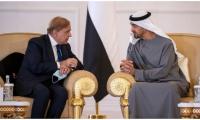ISLAMABAD: The Prime Minister’s Focal Person for Polio Eradication Babar Bin Atta believes that Pakistan’s polio programme has been put right back on track by a revamp of its communications and operation strategies. However, the number of polio cases in the country will cross 50 this year, declining next year onwards so that Pakistan interrupts poliovirus transmission by 2022.
“We are cognizant of the concerns of the international community,” Babar said while talking to this scribe here on Friday. He was responding to the critical appraisal of Pakistan’s polio programme by the 21st International Health Regulations (IHR) Emergency Committee in its recent meeting regarding the international spread of poliovirus. The IHR Committee of the World Health Organisation (WHO) has recommended the government of Pakistan to renew its efforts because its polio eradication programme “is no longer on track.”
“Considering the ripple effects that a single well-orchestrated incident in Peshawar had on the polio programme, we knew that there would be more polio cases at the end of the low transmission season because of massive refusals of polio vaccination as a result of rumors and misconceptions,” Babar said, promising massive changes in the polio programme, which he himself will shortly announce.
“I know what it will take to achieve eradication. There is a global anti-vaxxers movement,” Babar said, referring to the worst-ever measles outbreak in New York in the last two decades caused by anti-vaccination campaign led by a specific community.
Babar said, one of the biggest problems faced by our polio programme as per survey results, is the risk perception in the masses. “While 95% of the 40 million children are vaccinated, the remaining 5% which make up to a million children are the cause of spreading the virus. Community mistrust lies at the heart of the problem; if it can happen in New York, it can happen in Pakistan as well,” he said, wondering why Pakistan should be singled out. Since poliovirus circulation is at its peak in parts of Khyber Pakhtunkhwa (KP), Babar said special efforts are being made to battle the disease on ground zero despite security and communications challenges in the central corridor that includes Bannu Division—the hub of the problem. “However, drainage samples from two sites in Peshawar have tested negative for poliovirus which means somebody at some level is doing the right thing despite all odds,” he explained.
Babar believes polio eradication requires an integrated approach. “We are trying to build alliances to counter whatever hardships remain,” he said, adding “we will soon gain the trust of the community by adopting a multi-pronged strategy, the results of which will be visible sooner than later.” In April 2019 the polio eradication programme faced multiple challenges during the national polio immunization campaign when children in Peshawar were falsely reported ill following vaccination with the oral polio vaccine. The incident had a notable impact on the April campaign in KPK, as well as across the country.
President called the Senate meeting under Article 54 of the Constitution
Crowd’s long wait due to persistent rain backed by heavy showers came to an end just for two deliveries with New...
Chief Justice Justice Faez Isa said amendments to the High Court Rules were necessary before appointment of judges
A division bench of the PHC comprising Justice SM Attique Shah and Justice Syed Arshad Ali heard the petition in which...
According to the Senate Secretariat, Gilani emphasized better coordination between the two Houses







